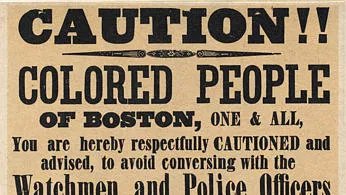
Two presidents died on March 8. Millard Fillmore in 1874 was the first. The 13th president (1850-53) and sixth in nine years, he was the last Whig POTUS, and regarded as one of the worst for his failure to heal the deepening north-south divide over the issue of slavery (more) 

2/
Fillmore earned his fate as one of the worst presidents for his support of the Fugitive Slave Act (1850), which required that all escaped slaves, if captured, be returned to their masters—and that officials and citizens of free states had to cooperate with this law (more)
Fillmore earned his fate as one of the worst presidents for his support of the Fugitive Slave Act (1850), which required that all escaped slaves, if captured, be returned to their masters—and that officials and citizens of free states had to cooperate with this law (more)

3/
Abolitionists called the Fugitive Slave Act the “Bloodhound Law” for the dogs that were used to track down runaway slaves. After his presidency, Fillmore opposed Abraham Lincoln during the Civil War
Abolitionists called the Fugitive Slave Act the “Bloodhound Law” for the dogs that were used to track down runaway slaves. After his presidency, Fillmore opposed Abraham Lincoln during the Civil War
The other president who died on March 8 was William Howard Taft, in 1930. The 27th president (1909-13), he was later appointed by President Warren Harding to became chief justice of the Supreme Court—the only person to serve in both roles (more) 

2/
Taft thought that being Chief Justice was the more pleasurable and prestigious job. "I don't remember that I ever was President,” he wrote. But his wife, Helen, who had a reputation as a social climber, thought the opposite
Taft thought that being Chief Justice was the more pleasurable and prestigious job. "I don't remember that I ever was President,” he wrote. But his wife, Helen, who had a reputation as a social climber, thought the opposite
This Day 1983:
In one of the most famous speeches of his presidency, Ronald Reagan referred to the Soviet Union as an “Evil Empire.” He told an Evangelical gathering in Florida that communism was morally corrupt because it repudiated God (more)
In one of the most famous speeches of his presidency, Ronald Reagan referred to the Soviet Union as an “Evil Empire.” He told an Evangelical gathering in Florida that communism was morally corrupt because it repudiated God (more)

2/
In 1982, Reagan told the British Parliament “the march of freedom and democracy” would leave Marxism-Leninism on the “ash heap of history.” He later tempered his rhetoric, meeting frequently with Soviet leader Mikhail Gorbachev and entering into arms agreements with Moscow
In 1982, Reagan told the British Parliament “the march of freedom and democracy” would leave Marxism-Leninism on the “ash heap of history.” He later tempered his rhetoric, meeting frequently with Soviet leader Mikhail Gorbachev and entering into arms agreements with Moscow
• • •
Missing some Tweet in this thread? You can try to
force a refresh














